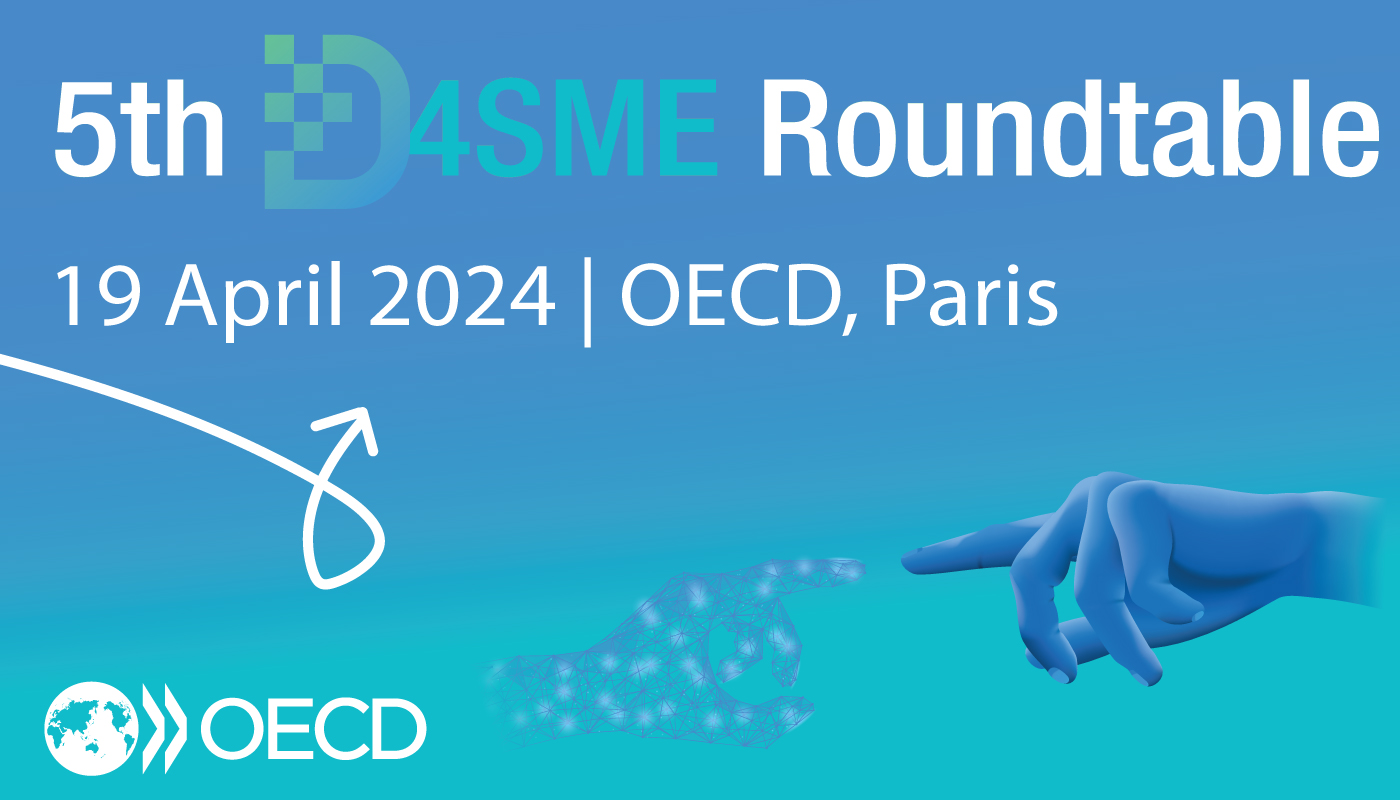A Global initiative to support SMEs in going digital
Co-organised by the OECD Centre for Entrepreneurship, SMEs, Regions, and Cities in cooperation with Business at OECD, the OECD Digital for SMEs Global Initiative (D4SME) intends to promote knowledge sharing and learnings on how different types of SMEs can seize the benefits of digitalisation, and on the role of government, regulators, business sectors and other institutions in supporting SME digitalisation. The D4SME contributes insights to the work of the OECD Committee on SMEs and Entrepreneurship (CSMEE). The research outputs and policy dialogue insights under the D4SME initiative, resulting from the co-operation among representatives from OECD governments and private sector, including business associations, entrepreneurs, large and small businesses, provide a complementary perspective on SME digitalisation and on the most effective policies to foster the digital transition of highly diverse SME populations.
About the 5th D4SME Roundtable
The 5th D4SME Roundtable took place on Friday 19th April at OECD Headquarters, in Paris. Chaired by Italy's Deputy Minister of Enterprise and Made in Itay, Mr. Valentino Valentini, with the participation of Deputy Ministers from Brazil, Korea, New Zealand, and Poland, it brought together stakeholders from the private and public sectors, academia, business associations, and entrepreneurs. Discussion focused on the Generative Aritifical Intelligence (AI) in SMEs: business uptake, digital skills, risk and digital security, regulation, and more.
Event documents:

The D4SME initiative is mandated by a bi-annual programme of work, which entails three pillars. The pillars that underpin the development of the initiative are:
What now for digitalisation of SMEs?
Many SMEs are lagging behind the digital transition. Most of them ignore the potential benefits in productivity and competitiveness, cannot clearly identify their needs, or do not have enough capabilities or financial resources to access and effectively use digital instruments. The SME digital gap slows productivity growth and widens inequalities among people, firms and locations. The COVID-19 pandemic has strongly accelerated the need for businesses to operate digitally, making this issue a top policy priority for OECD government.
|
Follow us on Twitter and on LinkedIn | #D4SME
Contact
D4SME Global Initiative | D4SME@oecd.org
OECD Centre for Entrepreneurship, SMEs, Regions and Cities
















